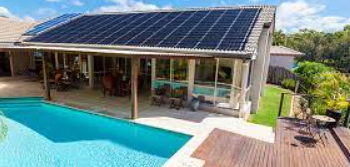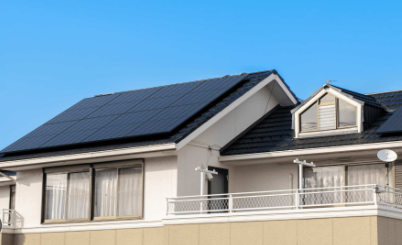Why You Should Harness the Solar Systems in South African Homes
In the radiant embrace of the African sun, South Africa stands as a promising canvas for the adoption of solar systems in homes. With its abundant sunlight and a growing awareness of the need for sustainable energy solutions, many South African homeowners are contemplating the shift towards solar power. In this article, we explore the factors that make South Africa an ideal landscape for harnessing solar energy in residential spaces.

1. Abundant Sunlight
South Africa is bestowed with an enviable amount of sunlight, making it an excellent candidate for solar energy harnessing. The country experiences high solar irradiance levels, particularly in regions like the Northern Cape, where the sun's intensity is among the highest in the world. This abundance of sunlight translates to optimal conditions for solar panels to generate electricity throughout the year.
2. Reduced Electricity Bills
A compelling factor encouraging the adoption of solar systems in South African households is the opportunity for significant reductions in electricity expenses. Through the generation of their own power, residents can diminish or completely eliminate their dependence on the grid. Given the continual rise in conventional electricity costs, solar power emerges as a sustainable and economically viable alternative.
3. Government Incentives
The South African government recognizes the importance of transitioning to renewable energy and has implemented various incentives to encourage the adoption of solar systems. Programs like the Renewable Energy Independent Power Producer Procurement Program (REIPPPP) offer financial support and incentives for individuals and businesses investing in solar and other renewable energy sources.
4. Grid-Tied Systems and Energy Credits
South Africa allows for grid-tied solar systems, enabling homeowners to feed excess electricity back into the grid. This not only contributes to the overall energy supply but also allows users to earn credits. These credits can be utilized during periods when the solar panels may not be producing electricity at full capacity, such as during the night.
5. Off-Grid Capability
In areas where access to the grid is sporadic or in locations susceptible to power interruptions, solar systems provide a crucial off-grid feature. By incorporating battery storage, residents have the ability to accumulate excess energy on sunny days and deploy it during times of reduced sunlight or grid disturbances, guaranteeing an uninterrupted power source.
6. Environmental Sustainability
In addition to the financial benefits, the adoption of solar systems is in harmony with the worldwide effort to promote environmental sustainability. Solar energy is both clean and renewable, emitting no harmful substances during its operation. Opting for solar power in residential settings plays a part in diminishing carbon emissions, promoting a more robust and sustainable environment.

7. Technological Advances and Affordability
Over the years, advancements in solar technology have contributed to the increased affordability of solar systems. The initial investment, once a potential deterrent, has become more accessible to a broader range of homeowners. As technology continues to improve, the efficiency and cost-effectiveness of solar systems south africa are likely to be further enhanced.
Final Thoughts
South Africa's vast and consistent sunlight, coupled with government incentives and an increasing need for sustainable energy solutions, positions the country as an ideal environment for adopting solar systems in homes. Beyond the financial benefits of reduced electricity bills and government incentives, the environmental impact and off-grid capabilities make solar power a compelling choice for homeowners across the nation. As the sun continues to shine brightly on the African continent, harnessing its energy offers a path toward a greener, more sustainable future for South African homes.








